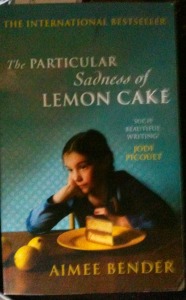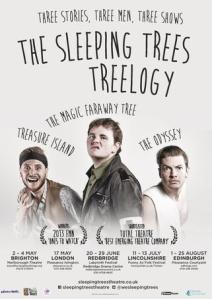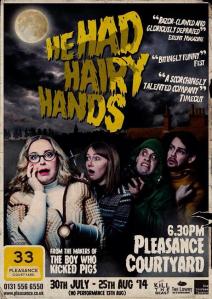(In 2012 I arranged with a site to review the books up for the Fantasy Clarke. Plans changed and the coverage got scrapped, but I still have the reviews, so I’ll put them up.)
In Twilight Robbery Mosca Mye, a young urchin attached as a ‘secretary’ and partner in crime to writer-cum-conman Eponymous Clent, finds opportunities for making a dubiously-honest living drying up in her corner of the world. This is partly due to general hard times, and partly due to Mye and Clent’s propensity to cause trouble and bend the law to earn their crust. They decide to cross to what they presume will be greener pastures via Toll, a provincial town perched on the one sure crossing between chunks of their continent. But Toll is more complex and sinister than it appears. Mye and Clent’s relatively simple goal is frustrated by financial difficulties, a man who plans to kidnap the Mayor’s daughter, and a powerful Guildmaster with little love for Mye and Clent, who has plans of his own for Toll.
In the world of Twilight Robbery, every chunk of a few hours of the year is sacred to one of a huge pantheon of ‘Beloved’. These small gods can be invoked for their special properties, and people ‘born under them’ are named for them and supposedly take on something of their character. In a lot of faux-medieval Europeanish fantasy, religion, when it’s remembered at all, is worn as an affected afterthought, like a silly hat. It can provide some plot-business for religious-establishment-flavoured villains, give female characters a job and some mobility, or serve as a means of marking characters as pious. People occasionally remember to think about its impact on their lives much the way I occasionally remember overdue library books–i.e. in a vague, guilty way, when I actually see them sitting there or the specific subject of ‘overdue library books’ comes up.
This doesn’t really reflect the way belief systems of all kinds shape people’s entire conception of their world, historically and today. Intelligence and cynicism weren’t ‘sure barriers’ against the medieval church, they simply affected how you related to aspects of faith, because faith and the structures surrounding it were huge components of everyone’s lived experience. In fact intelligence and cynicism might be as easily harnessed to the service of faith. In Twilight Robbery, belief in the Beloved seriously affects characters’ lives and the plot. This perhaps reckons more honestly with the way religion made the Medieval world and everything in it inherently non-secular. Hardinge’s setting isn’t window dressing, it’s a vital component of everything that happens.*
Twilight Robbery is an enjoyable book in and of itself, but perhaps more importantly its writer shows she could well develop both this series and her craft into something really astounding. This sounds patronizing–she’s a grown woman and a proficient writer, and I must admit, this is all I’ve read of hers. But we’re always developing as writers, aren’t we? Dickens circa Old Curiosity Shop, four novels in, is nowhere near the writer he’ll be by David Copperfield, and then again by Our Mutual Friend. He becomes both quite a different writer and a much better writer (unless you adhere to G.K. Chesterton’s sanguine assessment of the early picaresques). Three things, I think, are keeping Twilight Robbery from being truly great at the moment–and I see them all as skills that Hardinge will probably build on as she writes more books.
First, this book probably needs to drop 150 pages. Possibly 200. I’m not fussed about exact numbers, but something in this area. That sounds madly draconian and drastic, but not enough goes on herein to justify the book’s 522 pages, which seem exceptionally excessive both given the novel’s structure and for a YA novel. Everything that happens or needs to happen could be condensed without sacrificing charm of manner. We go on too many side-jaunts, to the extent that it feels like I’m playing Fable. I wouldn’t lose any of the characters, but some of the stray plot thickener could go. It’s not just a length issue: there’s a connected pacing problem. The novel made me feel restless after twenty page chunks, and on top of the length the book seemed to take me a frustratingly long time to finish due to its pace. Russian epic novels, the world’s most compelling thing-around-the-house-that-can-be-used-as-a-door-stop, tend to flip between characters/arcs and have a lot of plot-business, coupled with a strong sense of momentum. They thus justify their length and don’t necessarily feel it. Twilight Robbery might benefit from adopting these strategies.
Secondly, the Sense of Sequel is distracting. There are well-worked-in references to the events of the previous book, and these references show the characters haven’t just forgotten their earlier adventures. That’s good, because that amnesiac quality is always irksome in serialized genre fiction and denies characters a sense of psychological realism and interior life. It strips the causality from their earlier adventures and makes them less meaningful. It also denies readers the pleasures afforded by a larger arc unfolding in the background. However Hardinge hasn’t developed the light touch employed by Terry Pratchett, which ensures that almost any Discworld book can be picked up, read and enjoyed in any order, without leaving the reader feeling half-informed, like they’re missing out and not properly enjoying characters who were introduced and developed in another book. Since Twilight Robbery is marketed not as a sequel but as one of a loose confederacy of Mosca Mye adventures, this form of responsibility, different from that involved in writing an explicit sequel, is incumbent upon Hardinge.
We’re working with a world where the atomic substance of the plot and setting is, due to the Beloveds, typology, character and characterization. Given this, the characters aren’t as good as they could–no, as they need to be. They’re all there in their basic components: they have solid, conflicting, comprehensible motivations, interesting but not twee over-weaning competencies, and positions that prompt them to interact with each other in engaging ways. They just need more wow-factor. To make this sort of fun romp *pop*, the full cast needs to be sharply characterized. And *popping* is what this sort of book must do to work–that’s not an optional extra. This isn’t an argument for idiot-proof broad-strokes good-and-evil genre caricatures. It’s for more searingly accurately observed secondary characters, where despite the fantasy setting distancing you from them, you groan just reading their descriptions because you so know that guy and that’s such an astute observation.
Eponymous Clent is a bit limp in this book. We’re told he tells fabulous stories, but we don’t hear his moments of great rhetorical triumph (which are presumably greater than can be rendered here, etc.), and so an important component of the character is lost to us. He should be an amoral sort of early Doctor (as in Who) figure: semi-squirrely, self-interested and pathetic, but also engaging and clever, scraping through dangerous situations in thoroughly compelling style. The dynamic between him and his companion should be rich and enjoyable. Instead Clent’s something of an ‘also ran’ in the wily/fun/morally-dubious itinerant adventuring protagonist race, and his friendship with Mosca falls flat. And what goes for Clent goes for the whole cast. Clent and Mosca’s old acquaintance Jennifer Bessel has a strong voice, but (based on this book alone), she doesn’t have much of an ‘I must go home and write all the fanfic about this fascinating and well-drawn character’ factor. The sinister guild-leader Aramai Goshawk has what would be sexual tension with Mosca, if Mosca were about six years older, but otherwise he’s a relatively generic Vetinari-ish figure.
These are things which, based on the strength of her current work, I think Hardinge is capable of achieving. Despite the pacing issue, her writing is vigorous, occasionally breaking into flits of sprightly comic joy–a tendency which should be encouraged and expanded upon, as Hardinge manages these moments well. The world she builds is creepy, elaborate, conceptually intriguing, and fun despite its grimness. Her characters could do more, but they’re soundly devised on a fundamental level, and Hardinge establishes distinct and strong voices for each of them. This book isn’t all it could be, but it’s enjoyable, and there’s a lot to be said for its appealing ordinary-and-extraordinary scrappy young female protagonist. Twilight Robbery is very readable in its own right, and a good base to build on.
* This actually makes Mye’s father’s skeptical turn feel more earned. For a bad example of the need to make Characters from the Past believe like modern Western secular people to prove they’re clever and worthy, see what Big Finish does to make Erimem a fit traveling companion for Five in her introductory serial,“Eye of the Scorpion”. The ACTUAL LIVING GODDESS of Egypt is all ‘I dig science, religion isn’t all that’ and doesn’t… worry this blasphemy will affect the inundation and harm her magical connection to the land, which sustains the fragile balance of the entire nation?
They don’t even have the guts to:
1. do this consistently if they’re going to do it,
2. work out what her relationship to faith is, if it’s indeed multifaceted,
3. tie her skepticism to Egypt’s long history of power-wrangling between the monarchy and the priesthood, or
4. tie her skepticism to her ENORMOUS role in the religion and her lived experience (sometimes she gets sick and doesn’t feel like the incarnation of gods on earth etc.).
This introduction unintentionally comes off as a Dawkins-ish condemnation of silly brown people and their failure to fall in: Erimem is okay because she’s Like Us, modern and secular. People who aren’t Like Us, who don’t think and believe as we do–they shouldn’t be a part of the narrative. Which… is the opposite of the point of Doctor Who, at its best.









